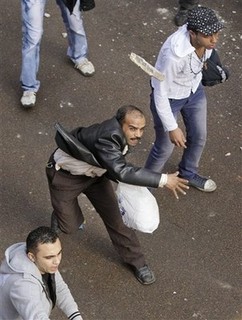The bombing of the al-Qidiseen church (“Church of the Two Saints”) in Alexandria, Egypt, shortly after midnight on January 1 — in an attack that appears initially to be the work of al-Qaeda — is an ominous escalation in the ongoing attacks on Egypt’s Copts, one of the world’s most ancient Christian communities and the largest non-Muslim minority in the Middle East. The bombing also highlights the Egyptian government’s failure to protect its Christians, some 10 percent of the country’s population.
The explosion took place as worshipers were leaving a midnight service to celebrate the new year. Twenty-one Copts were killed and almost a hundred were injured, as were some Muslims in the area. Religion-related violent attacks on Copts are certainly not new — indeed, they are endemic. There are dozens each year, including by the security forces. For example, on November 24, 2010, security forces attacked Saint Mary’s Coptic Church in Giza, Cairo, to stop construction work on an extension to the church’s community center. Police surrounded the site at 3 a.m., while Coptic men were working on the roof and 200 people were keeping vigil inside the church. The security forces used tear gas, rubber bullets, and live ammunition: Four Copts were killed and at least 50 wounded, many seriously. At least 200 Christians were arrested at the scene or nearby, and were denied access to lawyers. On January 6, 2010, in Nag Hamadi, churchgoers leaving a midnight mass on the eve of Coptic Christmas were sprayed with automatic rifle fire from passing cars. Seven people were killed and others were wounded, three seriously.
Read Full Article »



